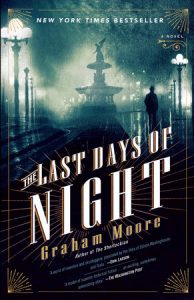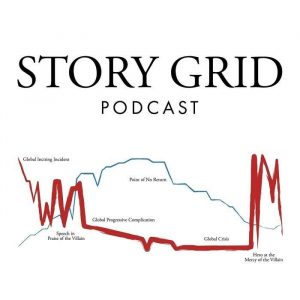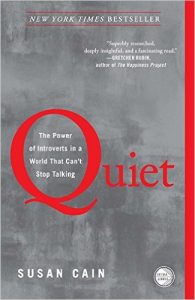I wonder for how long I’ve been ignoring the messages my body has been yelling at me. Certainly I should have known that the sensation of vertigo was enough to leave work, but I was so eager to get back to seeing clients after having had laryngitis for a week that I decided that nothing was going to keep me from doing just that. I was upset with myself for being sick so much. I was frustrated that I had to cancel so many sessions. I was worried that I was going to be fired. When I didn’t have a voice to use to call the group managers to tell them I wouldn’t be there, I read a whole lot into the responses I got from their e-mails. Were they pissed? Were they going to look elsewhere for services? I wish I weren’t so sick all the time.
In mid-April, I had some stomach troubles. I am used to this, but some were bad enough that I had to cancel a couple of sessions and meetings. A couple of weeks later, I caught a cold, which very quickly turned into laryngitis. This, too, I am accustomed to having happen — in the last couple of years, it seems that I lose my voice when I get a cold. There went another few days of sessions. The Monday after my cold hit, I finally had enough of a voice to use to sing in my sessions. I was determined to be fine that morning, and more determined yet to get back to my normal schedule. Being sick is just as much a mental exercise in guilt as it is a physical experience in discomfort or pain.
I felt well enough through my first session, though I remember thinking that I was feeling some dizziness on the drive away from the client. The sensation got worse, and coupled with a headache that originated in my temples and radiated to my eyeballs. But, I still had a voice, and I didn’t think whatever this crap was could be contagious, so I drove on to my next client. There I was, face to face with my client, and I was having trouble focusing — not my attention, though that was compromised, but my sight. Needless to say, I was not the best therapist in that session. I was simply trying to get through it without having to move for fear of falling over.
Though I hadn’t seen my next few clients in a couple of weeks, I called off the rest of my day and carefully drove myself home where I wept to my work-at-home husband about what a failure I was for being sick, yet again.
Having two kids under the age of four does not lend itself well to being a sick mama. But my husband never complains when he needs to take the full responsibility, and I went to bed and was miserable with body aches and fevers and chills the rest of the night.
The vertigo was so bad in the morning that I couldn’t sit up, so I pulled over my phone and e-mailed my day full of clients saying, another time, “I am sick.” I spoke to a nurse who said I might have the flu, and then my doctor said that I’d have to go in for an appointment to be prescribed anything. I wasn’t able to drive, so my husband took me in.
At the appointment, they weren’t able to measure my blood pressure on the machine because it was so low. The doctor said they’d have to run some blood tests to see what it is, but that since they’d need to send it over to the hospital, I might as well just go to the emergency room.
I’m busy calculating how much time there is left in the day before we have to go pick up the kids. I knew a trip to the ER would be lengthy.
When we got to the ER, they said I should’ve been brought over by ambulance because I was so hypotensive and my heart rate was so high. I thought, “How much would that have cost?”
I figured that once I got to the emergency room, I’d get IV fluids and feel immediately better. This was not the case. We were there for a few hours. They ran a number of tests on me. My husband was with me until he had to go to pick up the kids, and at that point, we learned that I had to be admitted.
Fortunately, my mother-in-law is local and was able to help with the kids’ bedtime. I spent time between blood draws and fever spikes e-mailing my clients to tell them I wouldn’t be seeing them that week.
The second day in the hospital was the worst. I had had a 102.9 fever the night before and hardly slept, and that second day I was emotional and embarrassed for being there. The doctors said I had two separate infections that had gotten to my blood and gave me sepsis. I was dizzy because my blood pressure was so low. I also had developed a rash on my arm, and they were concerned that the infection might have gotten to my wrist, in which case antibiotics wouldn’t help. I had an echocardiogram because that particular strain of strep could affect the heart. I was on two antibiotics, and then they changed one after learning about the certainty of strep. I didn’t have an appetite.
On the third day in the hospital, I wasn’t dizzy and I was finally comfortable. I was in the hospital for four days, and they discharged me with a PICC line so that I could have daily IV antibiotics on an outpatient basis for two weeks.
I’m done with the daily treatments and have a follow-up appointment this week.
My parents were able to come up and stay with me for much of the time I was getting treatments. I chose not to work during that time, and will be going back to seeing clients tomorrow. All of my clients were understanding and gracious. All of my clients wished me well.
Throughout this whole thing, I’ve mostly been in disbelief. I am sad when I hear my son tell people that I was in the hospital because I was sick. I am mad that I wasn’t able to play with my little people while I was stuck there, even though they did come visit me every night.
I wish I weren’t so distracted that I let everything get so out of hand. I wish I paid better attention to myself so that I could be better for my family. In all of it, I feel like I was the inconvenience, disrupting the flow of the day.
Anyway. That’s my account of my hospital stay.













